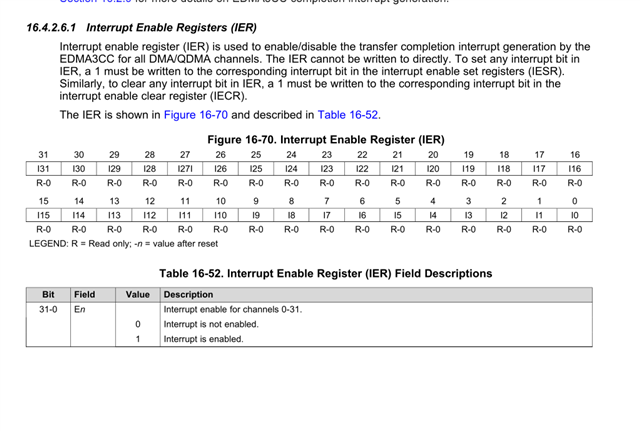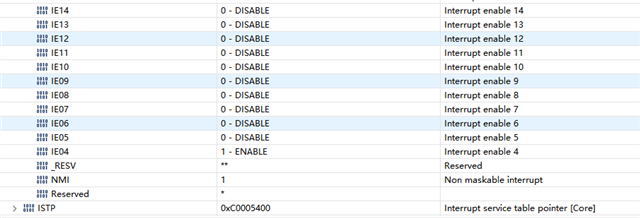

Why is the content of the IER table in the user manual different from that in CCS? In fact, I think CCS is correct, but in this case, I do not have the corresponding information and cannot program.
This thread has been locked.
If you have a related question, please click the "Ask a related question" button in the top right corner. The newly created question will be automatically linked to this question.


Why is the content of the IER table in the user manual different from that in CCS? In fact, I think CCS is correct, but in this case, I do not have the corresponding information and cannot program.
Hello,
The TMS320C6748 uses a 32-bit IER to control which interrupts are enabled or disabled. In the user manual, the IER is described as a 32-bit register, meaning it can store 32 individual bits, each of which corresponds to a specific interrupt source.
However, when you are working with the CCS integrated development environment for programming the TMS320C6748, the IER may be presented as two separate 16-bit registers. This is likely a result of how the CCS environment handles the register in its interface or API.
In practical terms, this means that when you are programming the microcontroller using CCS, you may need to access and manipulate the IER as two separate 16-bit values rather than a single 32-bit value.
I hope my explanation is helpful to you
Regards,
Gary
Hello Gary,
Even if I treat it as two 16 bit registers, how should I know the corresponding function for each internal bit?
And I want to know, I have found that some registers have the Reserve option. If I set a bit to Reserve, what function does this represent?